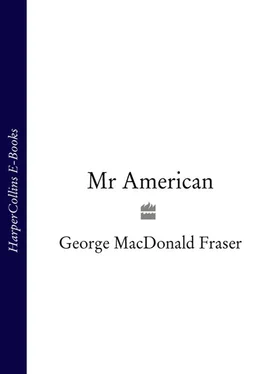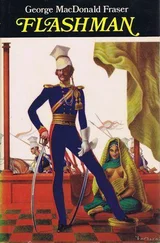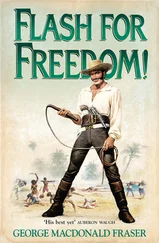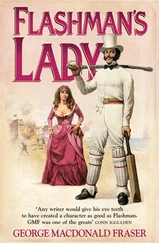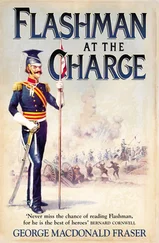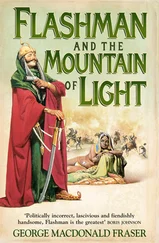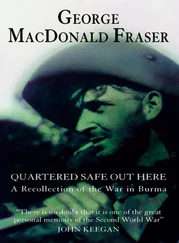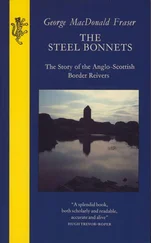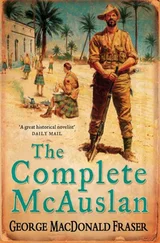He was not particularly interested in the little stout man, but he wanted to study this other one at leisure. Not that there was anything really remarkable about him, but he was out of the run of the normal transatlantic traffic. A Westerner, and not a townsman, either. Griffin studied the tall, rangy figure in its slightly incongruous cape and new bowler; good features, behind the black moustache that turned down slightly at the corners of the mouth, quite a fine face, like a scholar’s, even, thought Griffin, although this patently wasn’t a scholar. Soft-like, Murphy had thought, and Griffin could excuse him for the mistake; there was a gentleness, almost a diffidence, about the face and the man’s whole bearing, as though he were ready to apologise for being there. But he wasn’t soft; oh no, thought Griffin, you’re not soft – but nobody will realize it until the moment when they wish they hadn’t misjudged you.
The Inspector smiled. How long ago was it now? – twenty-four years, nearly twenty-five since the day that sometimes came back to him in bad dreams. The tangled clearing at Duck Lake, the reek of powder smoke and the crash of firing, the shrill yells of the Metis sharpshooters and the whooping of Big Bear’s Crees as they closed in through the woods on the battered circle of red coats among the carts and slaughtered horses. The Army Colt jumping in his fist as he fired over the shelter of his saddle, and then the scorching pain in his left arm, and himself pawing at the feathered arrow in his blood-soaked sleeve, crying great tears of pain, until the man next to him had crawled across to snap the shaft off short and thrust the arrow-head agonisingly through Griffin’s arm and out the other side. He remembered the man’s face; the same wide-spaced grey eyes, the lean features and straight jaw under the broad-brimmed hat, and the soft, almost apologetic voice: “Easy does it, Mountie. Just lie there, head down – okay?” Why, he might have been this fellow’s father, for looks. MacPherson, his name had been, a big, gangling scout in buckskin – but then, there had been hundreds like him, all through that campaign; tall, quiet men who said little, and that to the point, courteous in manner, pensive, rather lonely men.
And the wounded bewildered young constable in the red tunic was now Inspector Lloyd Griffin, of the Liverpool force, dressed in authority and drab overcoat, heavier about the jowls and waist, and instead of the trees and war-whoops by Duck Lake there was the echoing Customs shed and the respectable passengers and staff going about their business quietly and orderly in the civilised centre of England’s second city, and it was no buckskin man but a soberly-dressed American who was nodding to the Customs man and looking about for a porter.
Griffin sauntered closer and cast an eye at the label on the battered trunk. It read “M.J. Franklin, Adelphi Hotel, Liverpool, England.” Well, he hadn’t expected to see the name MacPherson, anyhow. Just because this boy was from the same stable, so to speak, of the same breed and the same neck of the woods, give or take a thousand miles or so, meant nothing. Inspector Griffin shook himself almost irritably. That was all long ago, and things had changed; this was the twentieth century, and the wild days were well gone now, except in the memories of old hands like himself. But for a moment there, the sight of that … that type, working on his Celtic imagination, had taken him back. Well, of course, men didn’t change, even if times did. And this one still seemed out of place, somehow, in grimy old Liverpool. In quiet old England, come to that.
He watched M. J. Franklin trying to catch a porter’s eye and not succeeding. No, decidedly he wasn’t a city-dweller. A farmer, perhaps? No, that wasn’t right. A surveyor, then, or an engineer. Most probably something like that, with his sundowner complexion. And what was he doing in England? Any one of a thousand perfectly ordinary things – Inspector Griffin chided himself to remember that men came and went with startling speed from the ends of the earth nowadays, on all sorts of errands; the old conventions that tied a man to his place were going, and it was becoming one world indeed. Bloody Frogs flying the Channel, for example.
“He got on the London train, second class, his name’s Kruger, and he travels for a New Jersey typewriter manufacturer.” Constable Murphy was back, reporting with every sign of self-satisfaction. “An’ he’ll be staying at Peterson’s Hotel, Baker Street.”
“Very good, Constable Murphy,” said Griffin, and since it would never do for Murphy to think he was impressed, he added: “And the little Yankee charmer with the blonde curls, then? Where was she going?”
“Maidstone, to visit her aunt,” said Murphy, grinning. “Well, she was having trouble finding a seat, and a policeman’s meant to be helpful, isn’t he?”
“She must be uncommon helpless if she can’t find a seat on a train that’s never half-full,” said Griffin drily. He was still observing Mr Franklin’s unavailing attempts to summon a porter. On impulse the Inspector whistled, short and sharp, half a dozen porters looked round, and a jerk of his head directed their attention to Franklin’s trunk. In a moment it was on a barrow and being rolled out of the shed; Franklin, who had heard the whistle, raised an acknowledging finger to the Inspector.
“Much obliged to you, sir,” he said, and strode off after his trunk, valise in hand, open cape flapping. Griffin watched the rangy figure out of sight, and sighed. So much for his romantic imagination, he decided. Still …
“Duck out o’ water,” said Murphy carelessly, following his chief’s glance.
“Yes,” said Inspector Griffin, turning away. “Yes, constable, you’re probably right.”
Once outside the Customs shed, Mr Franklin paused to examine the railway timetable board; there were, he saw, five companies competing to carry him to London on Monday. After some deliberation, he decided on the London and North-western, which undertook to convey him to Euston in something over four hours, via Crewe and Rugby, for 29 shillings first-class. Just under six dollars, in fact. It was the fastest train, not that that could matter to a man who had not taken the special vestibuled boat-train for Atlantic passengers which was even now pulling out of Riverside Station with a shrilling of steam.
His porter was waiting at the cab rank, and on his inquiring whether the gentleman wished to travel by taxi or horse cab, Mr Franklin fixed him with a thoughtful grey eye and asked what the fare might be.
“Cab’s a shillin’ a mile, taxi’s sixpence a half-mile an’ twopence every sixth of a mile after that,” replied the porter.
“And how far is the Adelphi Hotel?” asked Mr Franklin.
This innocent question caused some consternation among the taxi-men and cab drivers; some thought it would be about a mile, if not slightly more, but there was a school of thought that held it was a bare mile by the shortest route. No one knew for certain, and finally the porter, a practical man who wanted to get back to the Customs shed for another client, settled the matter by spitting and declaring emphatically:
“It’ll cost you a shillin’, anyways.”
Mr Franklin nodded judiciously, indicated a horse-cab, and then paid the porter. He seemed to be having some difficulty with the massive British copper coins, to which he was plainly unaccustomed, and the tiny silver “doll’s-eye” threepence which he eventually bestowed; the porter sighed and reflected that this was a damned queer Yank; most of them scattered their money like water.
This was not lost on the cabby, who mentally abandoned the notion of suggesting that he take his passenger by way of Rodney Street – which would have added at least sixpence to the fare – there to gaze on Number 62, the birthplace of the late Mr Gladstone. Americans, in his experience, loved to see the sights, and would exclaim at the Grand Old Man’s childhood home and add as much as a shilling to the tip. An even better bet was the house in Brunswick Street where Nathaniel Hawthorne had kept his office as U.S. Consul in the middle of the previous century, but somehow, the cabby reflected morosely, this particular American didn’t look as though he’d be interested in the author of Tanglewood and The Scarlet Letter either.
Читать дальше
